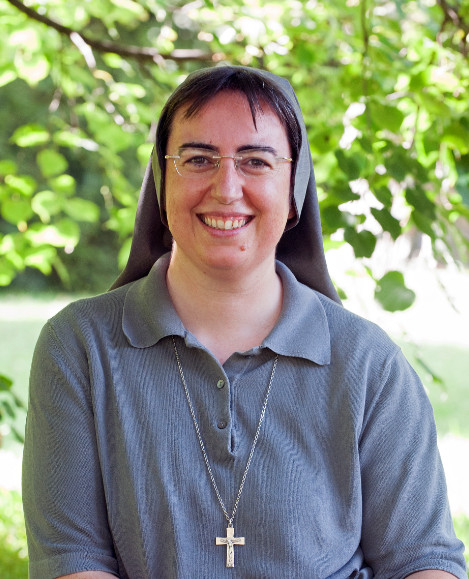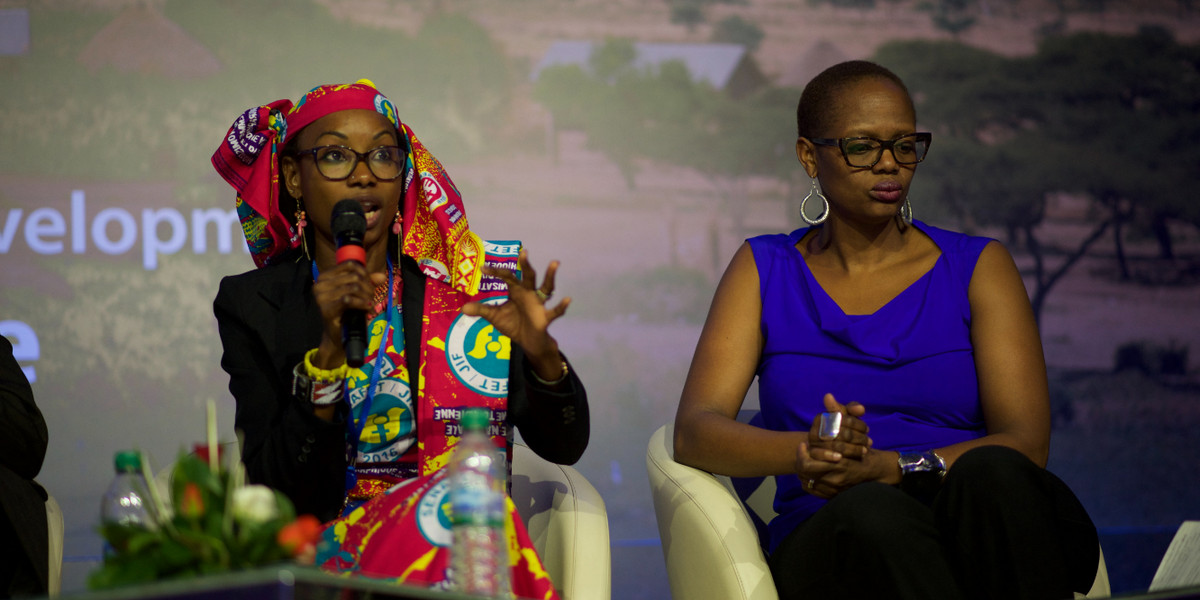By Alessandra Smerilli
VERSIONE ITALIANA
Long afterward, Oedipus, old and blinded, walked the
roads. He smelled a familiar smell. It was
the Sphinx. Oedipus said, ‘I want to ask one question.
Why didn’t I recognize my mother?’ ‘You gave the
wrong answer,’ said the Sphinx. ‘But that was what
made everything possible,’ said Oedipus. ‘No,’ she said.
‘When I asked, What walks on four legs in the morning,
two at noon, and three in the evening, you answered,
Man. You didn’t say anything about woman.’
‘When you say Man,’ said Oedipus, ‘you include women
too. Everyone knows that.’ She said, ‘That’s what
you think.’
(Myth, Muriel Rukeyser)
Modern economic science has been shaped entirely from a male point of view. It could not have been otherwise, as it became an autonomous science at the end of the 1700s. We have a founding father, Adam Smith, but not a founding mother. It is also difficult to identify the first female economists, since many used male pseudonyms in order to publish their research.
We could ask ourselves why it is so important that women think about economics. And we could ask ourselves if it makes sense to talk about a female role in the social and economic dimension, and thus if there is a specific role for women in these spheres. To do this, we should avoid falling into two real traps, even if they are not always perceived as such. The first trap where one falls (or let the others fall) is the argument that equal dignity corresponds to perfect equality, so it makes no sense to speak about woman’s role, since it is no different than the man’s role. Mill, for example, claimed that the difference between men and women was visible only because women did not have the same chances as men, but once disparities have been eliminated and once the doors of education and career have been opened to women, they would entirely become similar to men: in excellence, he argued, there is no significant difference between female and male. However, this way of thinking has gradually led us to assume the masculine as a prototype to which to relate everything. The sociologist Simmel, in fact, observes that the position of power that men hold within our society results in the generalization of male standards, as if they were referring to the whole humanity [1].
On the other hand (the second trap), there are those who exasperate the specificities of women, making them even more sources of discrimination, as Laura Zanfrini reminds us: “The promotion of equity is in tension with the enhancement of the differences and specificities of the female component. The first aim lends itself to the criticism of homologating specificities, assuming the masculine as the standard to strive towards; the second one with the reification of stereotyped images of the masculine and the feminine.” [2]
The economist Victoria Bateman writes in The Guardian newspaper: “The questions that economists try to answer, the tools they use to find the answers (which are mainly mathematical), the standard assumptions they make along the way (for example asserting that human beings are emotionless, free and self-concerned), and what they choose to measure, everything reflects a traditional and masculine way of looking at the world”.
So we ask ourselves, what if the economy was shaped by the thoughts of women? What would it look like? Actually, there are already many women contributing to the vision of the economy, but they probably haven’t been recognized until recently. Among the consequences is the pandemic hitting humanity like a scourge, pushing us to seek new solutions. And probably the public debate is more open to ideas that until recently seemed exotic.
If the economy was a woman, it would start to seriously worry about the common good, and we would realize, with the thoughts of Elinor Ostrom, first female Nobel Prize winner for economics, that humanity’s capability to cooperate and manage commons is much greater than mainstream economic theory would like us to believe.
If the economy was a woman, it would talk about care. For example: it would treat care-taking as an essential dimension of human activity, apart from work. And with the thoughts of Jennifer Nedelsky we would discover how we should rethink the timing of work and care, and that care could and should enter the public sphere. Sharing her ideas, we would imagine a world in which when we meet a person for the first time, we would ask them “who do you care for?” and not just “what do you do?”
If the economy was a woman it would rediscover a new way of assigning value to things. Embracing the ideas of Mariana Mazzucato we would revisit theories where use value determines the price of goods and not viceversa.
If the economy was a woman it would be shaped as a circle, as a donut, and not as a graph on Cartesian axes, where the definition of ‘good’ is directed upwards towards growth. With the ideas of Kate Raworth we would realize that ‘good’ is in balance and it has limits.
These are just a few samples, this list could be longer.
The word economy comes from the Greek oikos-nomos: care and management of the house, where ‘house’ can refer to our domestic walls, but also to our common home, the planet we inhabit. The house is seen differently by men and women. Until now, the perspective of the house and our common home is mainly male. Men are more focused on labor, on material and institutional aspects: all of this is very important, but if this becomes the dominant perspective, it can distort reality. Women’s perspectives may be more centered around relationships and care. However, this focused and unique perspective is neither sufficient in itself, but is missing in the larger context, at the political level and by institutions in general.
We need to start or keep looking at this home from a woman’s perspective. Above all, we must start to look at our home together, both men and women. We need to imagine the future together.
[1] Coser, L. A., Masters of Sociological Thought: Ideas of Historical and Social Context (2nd ed.). New York: Harcourt Brace Jovanovich, 1977.
[2] Zanfrini Laura, La femminilizzazione della società, in Tarchi Paolo – Colasanto Michele (edited by), Il genio femminile e l’impresa, Rome, Città Nuova, 2007, 137.
About the author
Sr. Alessandra Smerilli is Professor of Political Economics at the Pontifical Faculty of Educational Sciences “Auxilium” in Rome, she is a founding member and professor of SEC – School of Civil Economics. She is a member of the National Council of the Third Sector, the Ethics Committee of the SGR, as well as the Scientific Committee and organiser of the Social Weeks of Catholics. A Salesian religious woman, since 2019 she has been Councillor of the Vatican State. She is also Coordinator of the “Economics” Task-Force of the Covid-19 Commission set up by Pope Francis in March 2020.

Main photo: Hindou Ibrahim. Coordinator, Indigenous Women and Peoples Association of Chad Executive Committee, Indigenous Peoples of Africa Coordinating Committee by CIFOR – CC BY-NC-ND 2.0

